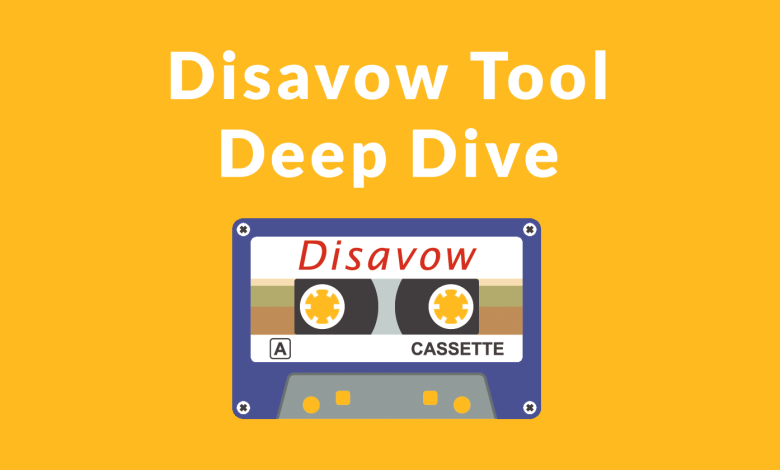
In a Webmaster Hangout from January 2019, Marie Haynes inquired about Google’s John Mueller’s perspectives on the disavow tool. While multiple articles discussed his comments, none provided a comprehensive look at the entire dialogue. Presenting the full transcript offers a clearer picture of his insights.
### What John Mueller Really Said about the Disavow Tool
Below is the complete conversation for you to evaluate.
Marie Haynes questioned whether business owners should continue disavowing links if Google is already ignoring low-quality ones, particularly those in the “gray area.” It’s an insightful question.
#### Marie Hayne’s Question:
“So I have a question about the disavow tool. We often conduct link audits for clients. Since Penguin 4.0 in September 2016, it’s been said that Google is adept at dismissing unnatural links.
Hence, my stance was that using the disavow tool shouldn’t be necessary unless there’s a manual action against unnatural links. We’ve advised its use only for sites actively manipulating link building through unnatural means.
However, confusion lingers among webmasters. Many audits and disavowal services are offered at high costs to address links that are likely being ignored.
Take, for example, a business that previously hired an SEO agency to do guest posting for link building, ending up with medium-quality links. Can we trust Google is ignoring these, or should disavowal be considered?”
#### John Mueller’s response included two backlink scenarios where disavowing might be necessary:
1. Manual actions
2. Links that could potentially trigger manual actions
### Disavow What the Spam Team Would Disavow
Here’s how John Mueller addressed Marie Haynes’ query:
“I think that’s a great question. From my perspective, if there’s a manual action or if you suspect that such links would prompt a manual action from the web spam team, it’s wise to disavow.”
This suggests two scenarios for disavowing: one is having a manual penalty, and the other is proactively disavowing links likely to fail a manual check. However, this doesn’t fully address Marie’s point about “medium quality” links.
John moved on to another discussion about past link-building tactics:
“For cases where manual action seems imminent but isn’t dependent on current states or precedents, those are usually okay.”
#### Marie Haynes reacted:
“Really? Ok…”
This response reflects surprise at John’s remarks about past link practices being ignored by Google, assuming they’ve evolved and are not problematic.
### Disavow if the Spam Team Would Disapprove
John extended his response back to the spam team’s viewpoint:
“If the web spam team would react negatively, then preemptive disavowal is recommended.”
#### What Old Link Tactics Does Google Ignore?
Marie explored old tactics possibly ignored by Google:
“For practices that occurred years back, Google may view them as benign due to their age and harmlessness.”
John explained that non-malicious behavior is a factor for such historical links.
### Does Disavowing Help Google Trust Your Backlinks?
Marie asked whether algorithms might punish sites without manual penalties but having dubious links. Her observations suggested improvements post-disavowal.
#### John Mueller acknowledged:
“This can indeed be true. Our algorithms might handle abundant bad links cautiously. Post-cleansing, they may view the link profile more favorably.”
Thus, disavowing glaringly bad links is encouraged, providing advantages both manually and algorithmically.
An audience member interjected:
“It’s still prudent to disavow to avert a manual action, correct?”
#### Mueller confirmed:
“If a web spam team would enact manual action under current conditions, it’s wise to disavow.”
### What About Gray Area Links?
Marie noted that typical business owners may lack clarity on what triggers actions.
#### Marie emphasized:
“Confusion exists, and many spend excessively on audits unnecessarily. Conversely, some sites could benefit from disavowals.”
#### John Mueller advised:
“For most, with genuine profiles, disavowals are unnecessary even after past missteps.”
### John Mueller on Google Discouraging Disavowing
Mueller highlighted Google’s strategy of minimally promoting the disavow tool to discourage misuse, aligning with the historical context of its reluctant introduction post-Penguin. Google consistently advised against its overuse, as most sites shouldn’t focus extensively on links.
Finally, Mueller offered:
“The tool offers peace of mind over worrying link histories. Disavow if known problematic origins disturb you, though unnecessary hunting for unrelated bad links isn’t.”
Overall, when links are not the root issue, addressing them may not rectify ranking drops. If no ranking boost follows disavowing, focus likely needs shifting elsewhere in your strategy.
### Additional Resources
Images and screenshots used have been provided and modified by the author.


